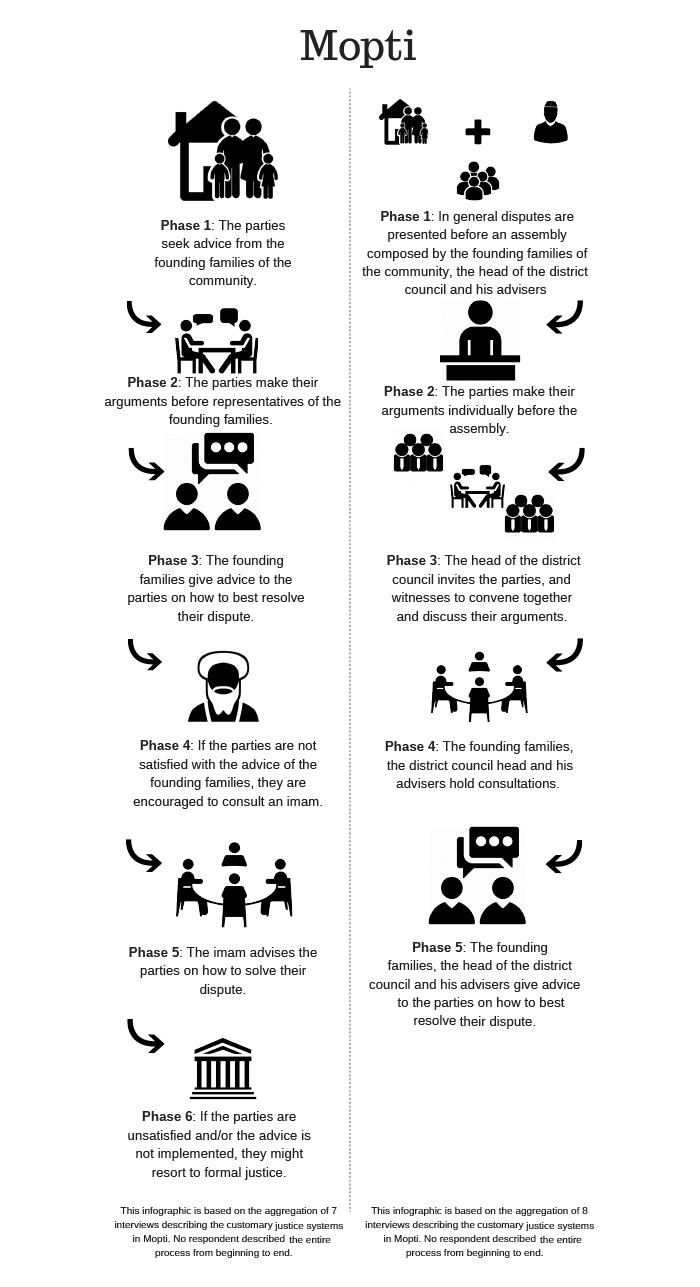An overwhelming majority of respondents trust customary justice mechanisms primarily because of their ability to preserve social cohesion within the community. This is especially important in rural contexts, where customary justice mechanisms are recognised as useful for the organisation of a neighbourhood or village and for maintaining peace and local traditions.
It is believed that, to maintain social cohesion, disputes should be solved internally, within the family or village. For example, an interviewee in Niafunké explained that even if he disagreed with a traditional leader’s decision, he would not bring his case to modern justice for the sake of social harmony. Modern justice is depicted as an institution that tears down social fabric and disrespects traditions and values. Rather than resolving disputes, modern justice is believed to complicate social interactions between individuals. Bringing someone to state justice is considered unforgettable and unforgivable. As one person explained, ‘Even if we are brothers of the same father or the same mother, we will never get along again.’
Another common claim was that traditional leaders have the legitimacy and ability to know what is good for the community. Traditional actors are seen as being more aware of the stakes and social implications of their decisions, and therefore as being more willing to work to create compromises between parties. This in turn is seen as supporting the maintenance of peace and cohesion within the community.

